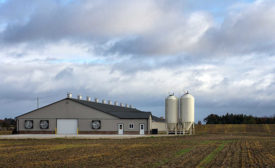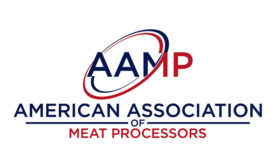Expert Commentary
Fight for Food Safety
Recall insurance: five lessons to ensure you're insured
December 3, 2019
Meat Science Review
Eye tracking used to further understand consumer perception
The eyes never lie: Application of eye-tracking equipment to understand consumer perception of beef color and marbling.
Read More
State of the Industry 2019 | Animal Welfare
State of Animal Welfare 2019
Get back to the basics
Read More
Get our new eMagazine delivered to your inbox every month.
Stay in the know with The National Provisioner's comprehensive coverage of the meat and poultry processing industry.
SUBSCRIBE TODAY!Copyright ©2024. All Rights Reserved BNP Media.
Design, CMS, Hosting & Web Development :: ePublishing













